The next morning, we float silently to Clearwater Canyon. The crew unloads our bags off the J-Rig onto a muddy bank where a jet boat will pick us up and ferry us the last 20 miles to Lake Powell. The crew secures the oarboats to the J-Rig, Arlo pops open a bottle of champagne to celebrate the end of the journey, and, after some awkward goodbyes, the crew leaves us standing on the muddy shore feeling a bit forlorn.
With a pirate flag whipping near his head, Arlo pushes back the brim of his sombrero and blows kisses at us as the pontoon boat pulls away and heads back up river. On the far shore, a lone Great Blue heron stares hard at us, then gives a small shrill cry, lifts up off the bank, and follows the wake of the boat. Upriver. Away from civilization.
With all my heart, I want to go with that bird. With the crew.
An hour and fifteen minutes later, we are at Hite Marina where an air-conditioned mini-bus takes us from the river to a nearby airfield at the top of a butte. We fly low over the canyon and spot Arlo and crew heading back up the river. I watch them, my heart aching, until they disappear from sight.
Half an hour later, we are in Moab. The first thing I do is take a very long shower. But no matter how hard I scrub, I find it impossible to remove all traces of the red river soil staining my palms, my soles, and even my face. Afterwards, I go sit out by the hotel pool where Brian and the River Buddha, also freshly showered, are drinking gin and tonics.
I show the River Buddha my red palms.
“You can never wash away the river,” he says in his heavy German accent.
I believe with all my heart that the River Buddha is right.

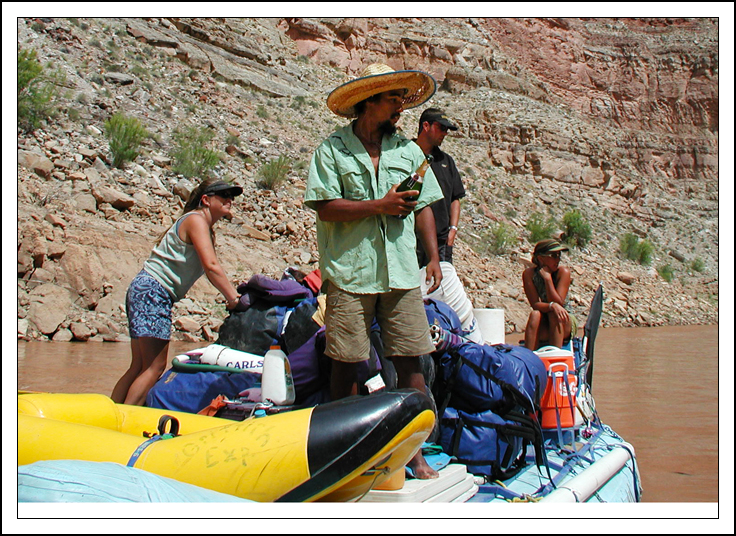
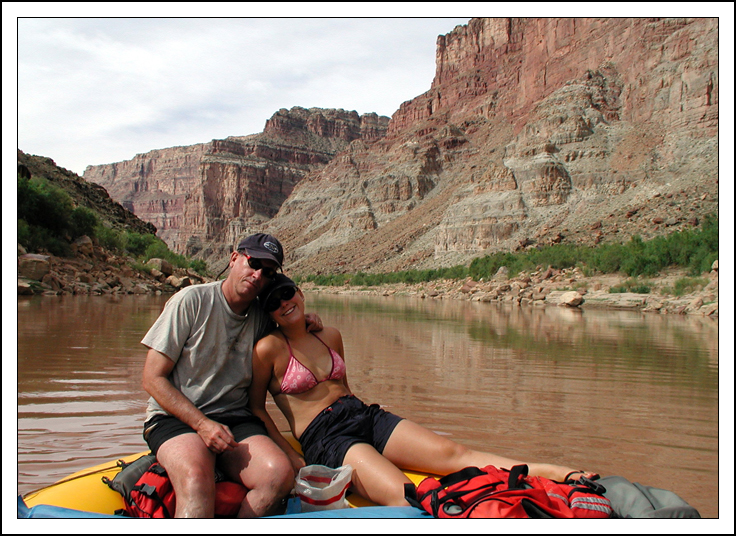
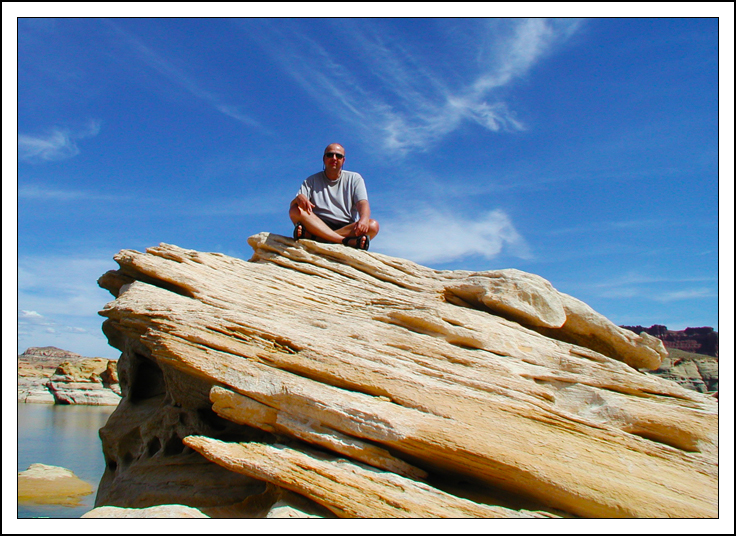
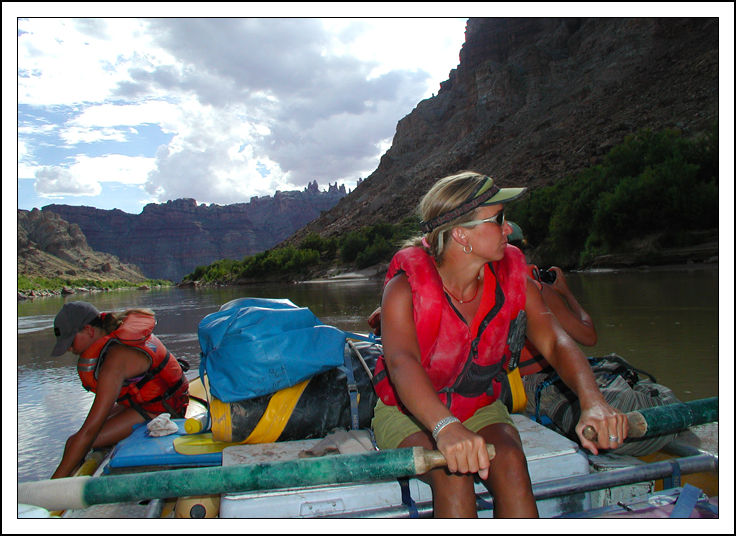
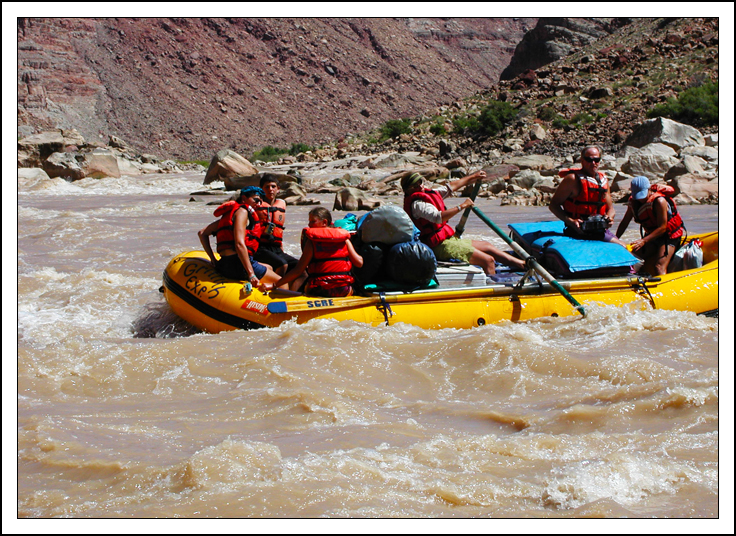
Recent Comments